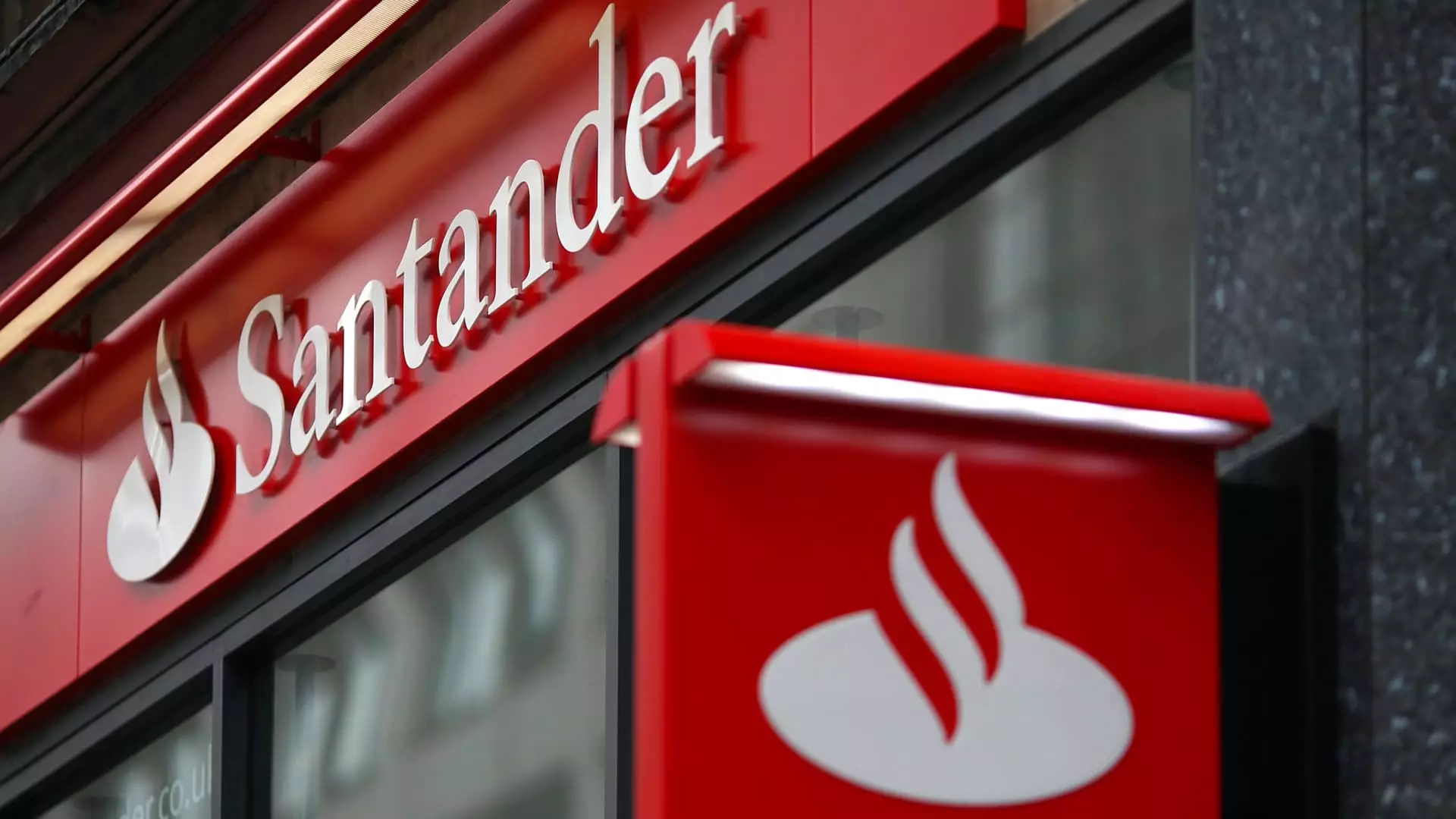Santander’s recent acquisition of TSB for a staggering £2.65 billion may appear to be a testament to its resilience and strategic foresight, but beneath the surface, it raises serious questions about the bank’s long-term stability and its motives within the UK market. While executives tout the deal as a smart move designed to boost return on capital and reinforce their diversified portfolio, the reality reveals a more complex story marked by uncertainty and internal struggles.
In the broader context, Santander’s aggressive expansion into the UK—an area where it entered through the purchase of Abbey National in 2004—has not translated into consistent profitability. The stark decline in pre-tax profits last year by 38% underscores the fragility of their British operations. Rather than demonstrating confidence, this move appears more like a desperate attempt to consolidate assets and shore up flagging performance, rather than a genuine belief in sustained growth. It hints at a deeper crisis, suggesting that Santander is perhaps trying to mask its vulnerabilities with a costly acquisition that may not deliver the promised returns in the long run.
Furthermore, the decision arrives amid a turbulent environment, where the profitability of personal banking is under siege from fierce competition and regulatory headwinds. It’s worth noting that this kind of “big deal” often distracts from the core issues—difficulty in adapting to a fast-changing banking landscape. The acquisition isn’t just about expanding; it’s also about consolidating a shrinking market presence that may not be sustainable if profit margins continue to erode.
UK Market: Stability or Risk in Disguise?
Executives like Santander’s CFO Jose Garcia Cantera assert that the UK remains a “very important and core component” of their diversification strategy. Yet, this seemingly positive narrative obscures a pressing reality: the UK’s banking environment is rife with uncertainty. Post-Brexit, the UK’s financial services sector faces new regulatory complexities, a sluggish mortgage market, and an ongoing mental battle over economic stability.
Santander’s claims about “predictable returns” in sterling are increasingly dubious in this volatile climate. The bank’s move to acquire TSB, seen as a defensive measure for Sabadell—intended to fend off a hostile takeover by BBVA—serves as a warning sign. If the acquisition is primarily a defensive tactic for Sabadell, whose leadership fears losing control amid aggressive merger bids, then the whole transaction’s strategic value for Santander becomes questionable. Are they genuinely acquiring TSB to capitalize on new opportunities, or are they simply capitalizing on a distressed asset to mask their own operational weaknesses?
The UK’s low-interest-rate environment has squeezed margins, and with the threat of continued economic uncertainty, the promise of robust returns might be overly optimistic. The bank’s own admission that competition in Spain is “probably the toughest in Europe” underscores an underlying vulnerability—one that the TSB acquisition may do little to alleviate. If anything, it risks diverting attention from fundamental issues that require innovative strategies, not just costly acquisitions.
The Spaniards’ Dilemma: Between National Interests and Global Strategies
The political and economic tensions surrounding this deal further complicate the narrative. The Spanish government’s cautious stance, influenced by regional political dynamics and concerns over job security, signifies that the acquisition is not purely a business decision. The potential for regulatory hurdles and the influence of Catalan politics cast long shadows over this transaction, which fundamentally questions the independence of banking strategies from national political agendas.
BBVA’s ongoing hostile takeover bid for Sabadell, which prompted the sale of TSB, underscores the tense game of corporate chess being played out across Spain’s banking landscape. The Spanish authorities’ insistence on maintaining separate judicial identities during the merger pause reveals a broader concern: that foreign and domestic corporate strategies are increasingly entangled with regional politics, potentially compromising the health and resilience of the entire sector.
From a center-leaning liberal perspective, this situation exposes the risks inherent in a banking sector too heavily influenced by political interference and short-term strategic maneuvers. Instead of fostering stability and long-term growth, such politically charged transactions often lead to market inefficiencies, layoffs, and diminished consumer confidence. The move may serve corporate interests more than the public good—in particular, job security and financial stability.
Balancing Act or a Real Threat to the Future?
For opponents of unchecked banking consolidation, the TSB deal symbolizes an ominous trend: large banks leveraging acquisitions not to innovate or serve communities better, but to shore up their declining assets under the guise of strategic growth. It exemplifies how a financial sector, already hostile and highly competitive, can become more consolidated in ways that threaten transparency and fair competition.
While the narrative from Santander’s leadership claims the acquisition is “financially very, very compelling,” skepticism remains justified. The whole affair highlights a core issue in the European banking sector—an environment where national rivalries, corporate strategies, and regulatory ambiguities converge with alarming complexity. Whether this move ultimately benefits consumers or further consolidates dominance within a fragile market is still an open question.
In essence, this deal reveals more than just a strategic expansion; it exposes vulnerabilities that could undermine the integrity of both the UK and Spanish banking systems. It challenges us to rethink whether such aggressive consolidation furthers economic stability or merely exacerbates the risks of a highly interconnected, politically influenced financial world.

